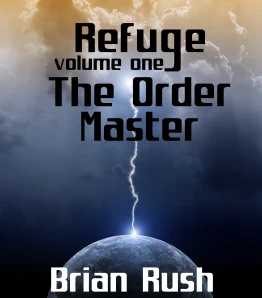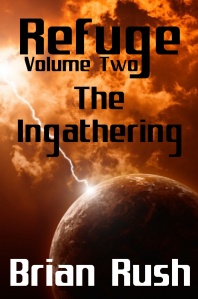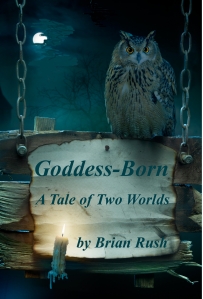Humility is a virtue asserted by every religion and every spiritual tradition and understood by very few. It’s something that was brought home to me recently by an exploration of the phenomenon of leadership.
A leader, particularly one in a spiritual position, must live a paradox. He is “above” the rest in certain ways: taking greater responsibility, providing guidance and help to others that they cannot as easily do for themselves, upholding the highest standards of thought and behavior. If he starts to think of himself as above the rest, though, he hampers his ability to fulfill his function as a leader. There’s a natural and lamentable temptation to see leadership status as a privilege, and to take from it affirmation of one’s own superiority. It’s very difficult to avoid doing this, but the very best of leaders do.
As Lao Tzu put it:
To lead people, walk beside them …
As for the best leaders, the people do not notice their existence.
The next best, the people honor and praise.
The next, the people fear; and the next, the people hate …
When the best leader’s work is done the people say,
We did it ourselves!
Humility is the name for this virtue, but it’s often misunderstood. A person who puts herself down is not being humble. In fact, you cannot be humble while thinking about yourself, unless there is a real need to do that, and then only temporarily. Focus on self, whether in praise or in criticism, is not humility.
Humility is self-forgetfulness. It’s doing what is needed, mind full of the doing rather than the doer.
I deal with this a bit in my work in progress, Goddess-Born, the second in the Tale of Two Worlds series and the sequel to The Green Stone Tower. In this passage, the goddess Lasatha is speaking on the qualities of a great ruler.
Above all else, the leader of a people must forget himself.
There is no room for selfishness – there is no room for self – in the heart that knows wisdom.
A leader is the expression of his people’s will, the caretaker of their well-being, the voice of their desires, the governor of their passions, their eyes on the path of destiny, and their hands raised in defense and in common works. All of this he must do for them, forgetting himself and his own desires.
A leader who remembers himself forgets wisdom. A leader who forgets himself is wise. A nation governed by such a man or woman is blessed.
The leader must be a clear channel for the people’s will and for wisdom, and in that channel there can be no room for his own desires, his own aggrandizement, his own ego.
Beware the rich man bearing gifts.
A rich man gives no gifts to the leader in truth. All that he gives is a price paid for some service, and he intends to get his money’s worth.
A leader who has forgotten himself will not be tempted. When the rich man comes to see the leader, gold raining from his hands and a smile on his face, the wise leader drives him and his gold away with a whip, for he knows that in offering gold to the leader, the rich man seeks to remind him of himself and so cause him to forget wisdom.
In America particularly we have become painfully aware of the corrupting effect of wealth on our democracy, but we don’t tend to look at it from the leader’s own perspective. If we selected leaders who were humble, who were self-forgetful, and whose concern was to serve the people’s collective will rather than to enhance their own status and maintain and augment their political positions, no amount of campaign contributions or even outright bribery would suffice as a corrupting influence.
A leader is chosen by the people who follow him, whether they know it or not. The leader must meet the approval of those who follow, or they will follow another instead.
For the leader to be among the wise, therefore, it is first necessary that a measure of wisdom be found in the people. The leader is elevated by the people’s choice, or upon elevation by another factor at least is maintained in power by the people’s tolerance. The people’s tolerance varies according to their wisdom, and their wisdom varies with the times.
At their most foolish, which is to say at their most frightened, the people follow a tyrant. In this, they surrender the power that should be theirs into the hands of another. If they are lucky, he proves to be a visionary who does great good. If they are unlucky (and this is much more common and likely), their lives become a nightmare for a time.
In their normal state, neither very foolish nor very wise, the people follow a venal leader, but keep him tightly bound with the restraints of law and of their own suspicion. Such a leader can do little good, but dares do little harm, and if he should dare, the law and the people restrain him.
If the people should become wise, they would follow a wise leader. But no generation has ever been wise. Yet I tell you that one day it will be so, and as it is I who say it you can be certain that it is true.
We may at any rate hope. I have some difficulty seeing either President Barack Obama or Governor Mitt Romney as a humble man who forgets himself. Perhaps this can be achieved part of the time, and perhaps that’s all we can expect given the state of our own minds.
Meanwhile, for those of us who are leaders in a smaller capacity, as well as for each of us engaged in spiritual questing and filled with a desire for understanding, humility is a cardinal virtue. For in the end, the self is an illusion, a standing wave created from the activity of the brain, useful for some purposes but distinctly problematic if we wish to transcend the deception in which we are bound and achieve enlightenment.
Image credit: rolffimages / 123RF Stock Photo







